Just Out: New Translations of Early Data-Driven Formalism (Yarkho, Gasparov, Shapir)
A new volume of the “Journal of Literary Theory” was published in March 2019 (vol. 13, no. 1: “Moscow Formalism and Literary History”), a special issue prepared and edited by us comprising three translations from the Russian plus preface:
- Frank Fischer, Marina Akimova, Boris Orekhov: Preface: Data-Driven Formalism (DOI:10.1515/jlt-2019-0001)
- Boris I. Yarkho: Speech Distribution in Five-Act Tragedies (A Question of Classicism and Romanticism) (1935–1938, first published 1997) (DOI:10.1515/jlt-2019-0002)
- Mikhail L. Gasparov: The Evolution of Russian Rhyme (1984) (DOI:10.1515/jlt-2019-0003)
- Maksim I. Shapir: “For Thee There Is No Weight nor Measure”. The Possibilities and Limitations of “Exact” Methods in the Humanities (2005) (DOI:10.1515/jlt-2019-0004)
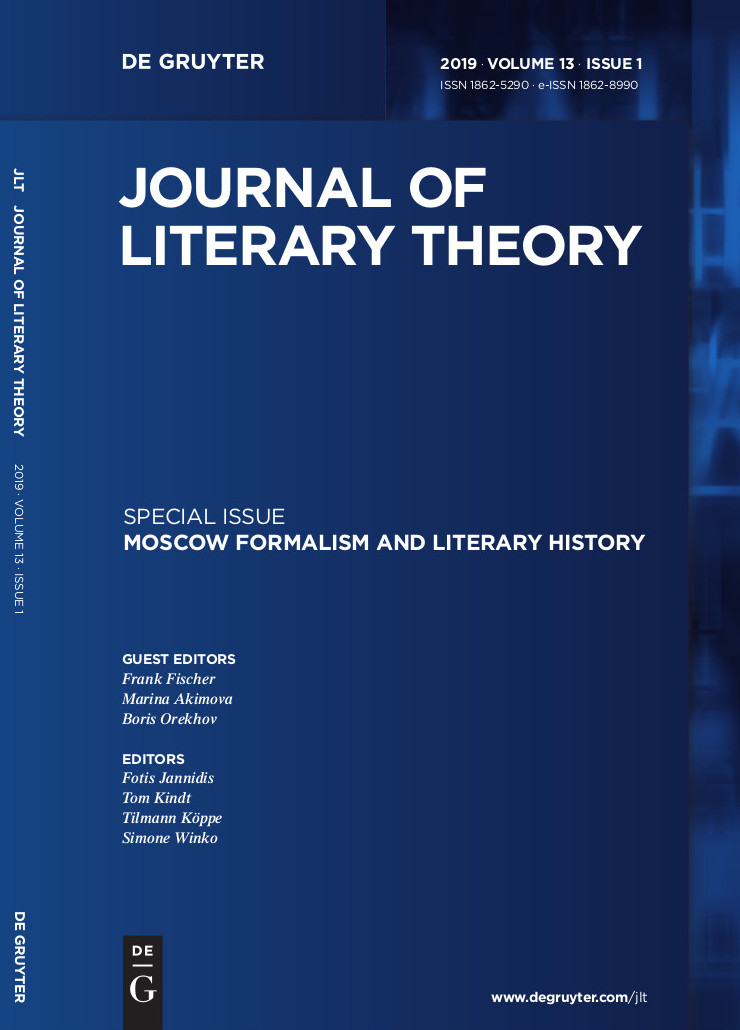
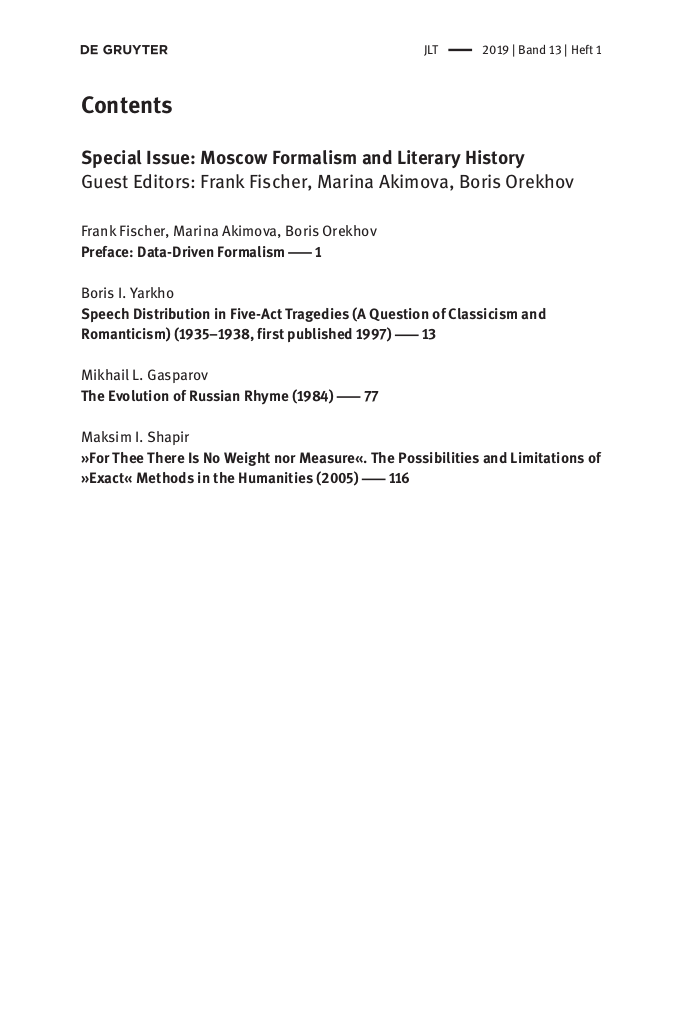
The idea for this volume goes back to a chat that Asya Bonch-Osmolovskaya and I had with Fotis Jannidis at the DH2015 conference in Sydney. As one of its editors, Fotis suggested to equip a special edition of “Journal of Literary Theory” with untranslated works of Russian formalists, especially quantitative literary studies. The idea was to build a bridge from early formalism to digital literary studies of today. The outcomes of the Stanford conference on “Russian Formalism & the Digital Humanities” (2015) suggested that it is not so easy to reconcile the two. That was, I would argue, due to the fact that some decisive texts were still untranslated.
Boris Yarkho
So we assembled a small team: Marina Akimova and Boris Orekhov joined as co-editors and Craig Saunders as translator. The first few pages of Yarkho’s text arrived in November 2017 with Craig admitting to “feeling a little charmed by the way he [Yarkho] writes”.
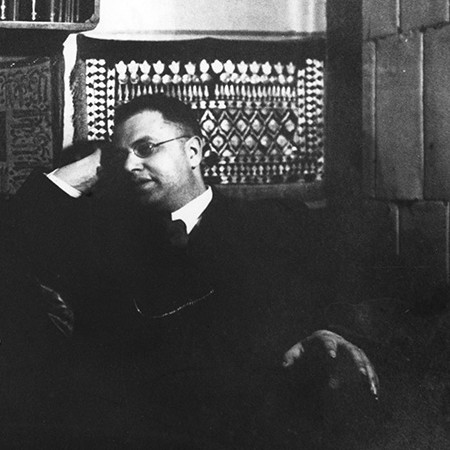
Except for a draft plan of Yarkho’s “Methodology for a Precise Science of Literature” (transl. by L. M. O’Toole, publ. 1977 in vol. 4 of “Russian Poetics in Translation”) and Gasparov’s early account of “Boris Yarkho’s works on literary theory” (transl. by Michael Lavery and Marina Tarlinskaja, publ. 2016 in “Studia Metrica et Poetica”), there’s not much first-hand info on Yarkho available in English. “Speech Distribution in Five-Act Tragedies” is the first translation of an article by Yarkho and it can be expected that it will leave its mark over time.
We know from a reliable source how the manuscript was first edited in the 1990s, because one of the co-editors of our volume was directly involved. Marina received the microfilm with copies of Yarkho’s manuscripts from Gasparov and manually transcribed them into a computer, projecting the film on a wall in her flat.
Yarkho’s description of his data and experimental setup are so accurate that it was easy to implement them. DraCor, our platform for research on drama (dracor.org), automatically extracts the speech-distribution pattern in the way Yarkho described it (monologues, dialogues, three-way dialogues and so forth) for every corpus and play connected to the platform.
Here are two examples:
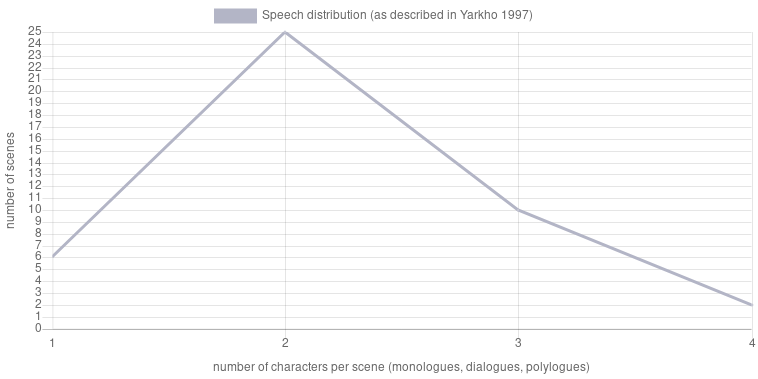
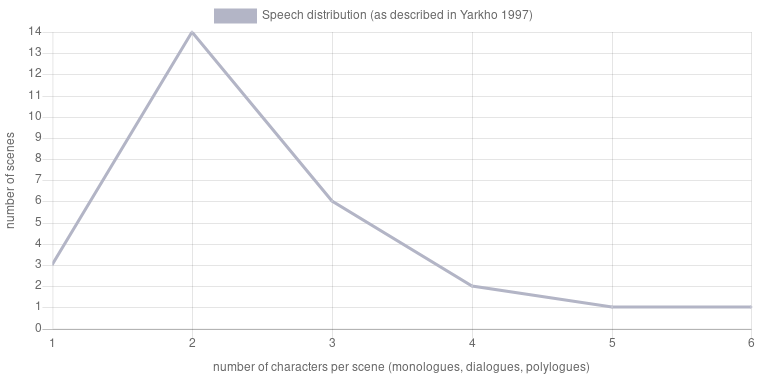
Ozerov’s "Dmitry Donskoy" (source: dracor.org)
Summer in Moscow
After we had finished work on Yarkho, we tackled the remaining two articles. The main difficulty in Gasparov was to put the stress on the many examples and rhyming patterns, which were not present in the Russian original. And finally, translating Shapir proved particularly challenging. It also looks like we were the first to actually translate a Shapir article into English.
Most of the work was done by the summer of 2018 when the World Cup was being held in Russia. I remember one of our last meetings one afternoon in June when Morocco had just been eliminated from the World Cup by a Ronaldo goal. I was sitting in the Metro on my way to a cafe close to Leninka and saw many melancholic Moroccan fans with their flags trying to cheer each other up.
After we received feedback from the editors, the printing proofs were largely completed in November.
Panel Discussion at ZfL Berlin: June, 12th, 2019
Thanks to the Leibniz Center for Literary and Cultural Research (ZfL) in Berlin, we will have the opportunity to present the volume and talk about the larger context in a panel discussion on June, 12th, 2019. Marina and I will be joined on stage by ZfL’s Siarhei Biareyshik, and Zaal Andronikashvili will chair the event.
More information:
http://www.zfl-berlin.org/veranstaltungen-detail/items/moscow-formalism-and-literary-history.html
